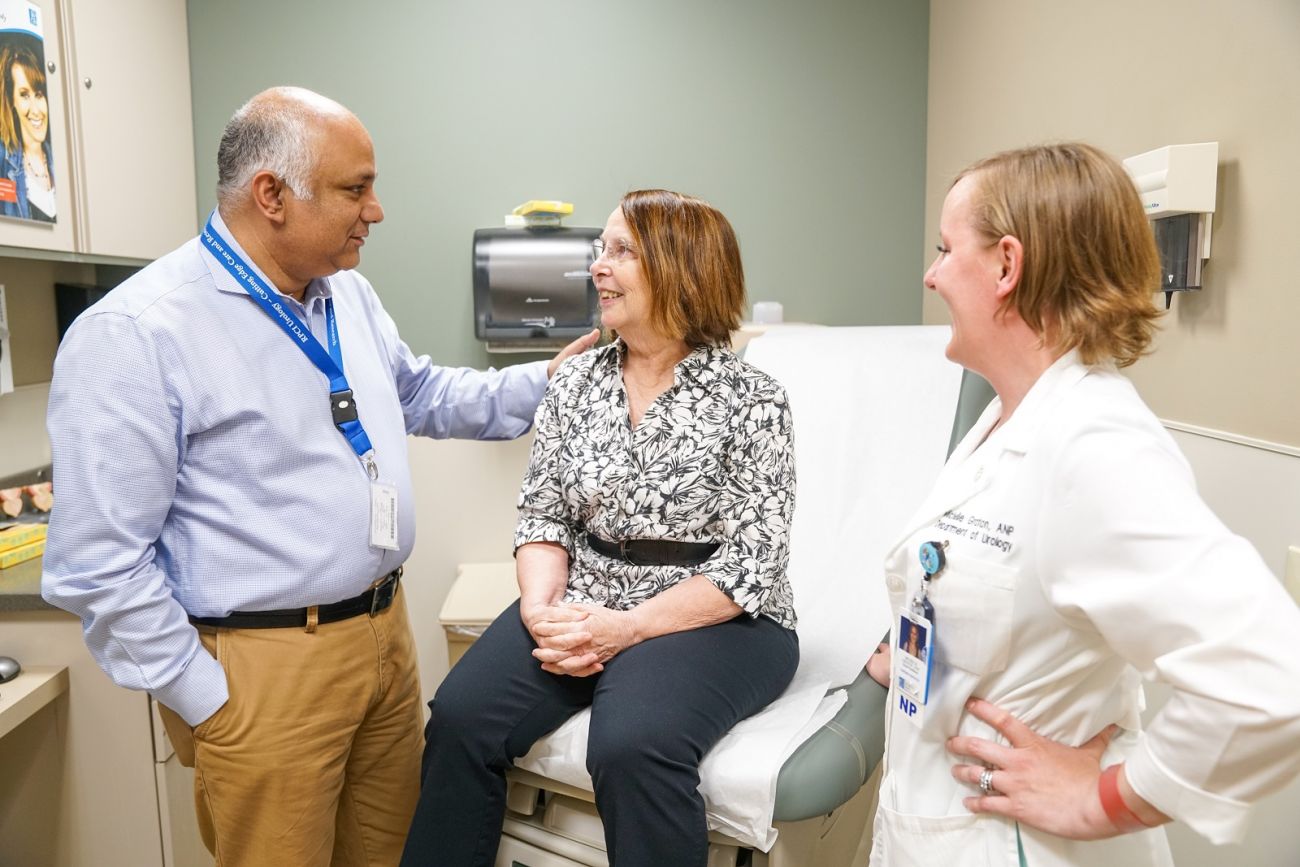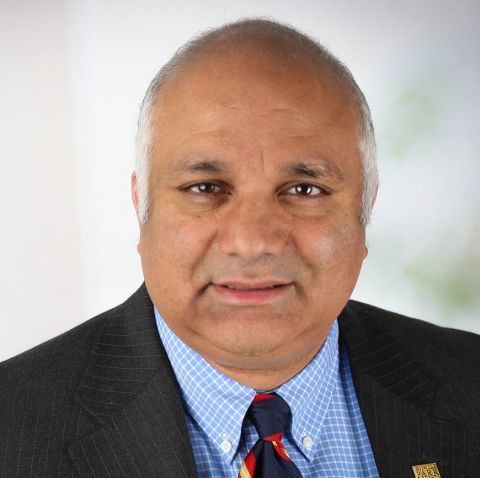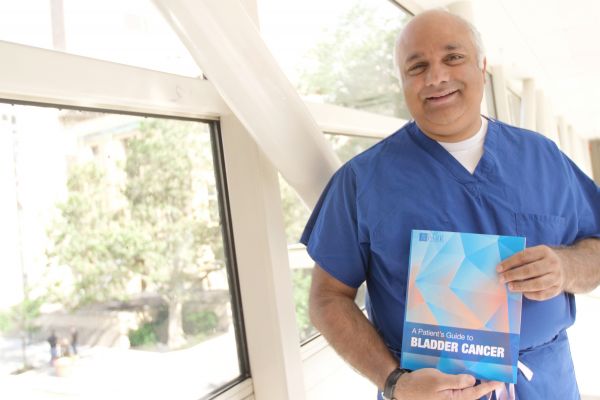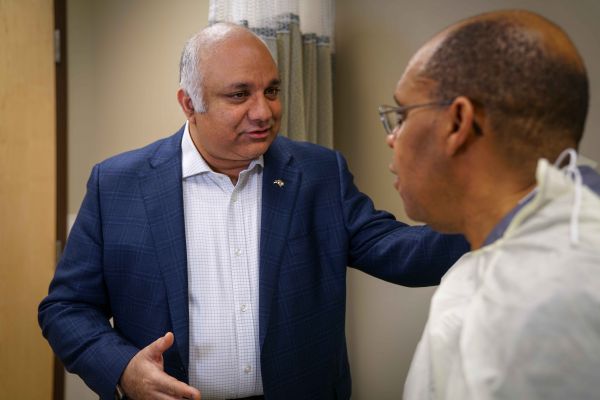If you see blood in your urine, don’t ignore it.
Even if you’re not experiencing pain, you need to find out why it's there. Blood in the urine could be caused by one of many reasons, but one of those is cancer, says Khurshid Guru, MD, Chair, Department of Urology and Director of Robotic Surgery at Roswell Park.
The presence of blood in the urine, also called hematuria, is present in 80-90% of patients at the time of diagnosis. “Some people figure it’s caused by an infection or kidney stone and don’t take care of the problem,” says Dr. Guru. “If you have blood in your urine, you should always tell your primary care physician.”
Who’s at risk for bladder cancer?
- Smokers. If you smoke, you’re three times more likely than a non-smoker to get bladder cancer.
- People who have had work-related exposure to o-Toluidine or aniline, chemical compounds used in the manufacture of rubber, dyes, pesticides and pharmaceuticals.
- People with a family history of bladder cancer.
The treatment plan for bladder cancer depends partly on the stage of the disease. It can involve surgery, chemotherapy, radiation therapy and/or immunotherapy. Surgery can range from removing just the cancerous areas of the bladder (through cystoscopy) or the entire bladder (radical cystectomy).
Get More Information About Bladder Cancer
Recognize other signs and symptoms of this disease and find out what steps you can take to lower your risk.
At Roswell Park, all radical cystectomies are performed with robot-assisted surgery, which involves smaller incisions and is associated with less pain, and a shorter hospital stay, than traditional “open” surgery. Roswell Park is an international leader in this procedure.
The link between smoking and bladder cancer
Bladder cancer is commonly caused by smoking. If you already have bladder cancer and continue to smoke, remember that although early-stage bladder cancer can be treated successfully, it is likely to come back (recur) in the future. Continuing to smoke can increase the aggressiveness of the cancer if it does return.
Roswell Park patients and their families can get help from the New York State Smokers’ Quitline (1-866-NY-QUITS or 866-697-8487), a free and confidential service that provides effective stop-smoking services to New Yorkers who want to quit.
Bladder Cancer Patient Education
To increase patient awareness, Dr. Guru has authored a book on bladder cancer that is available online.



